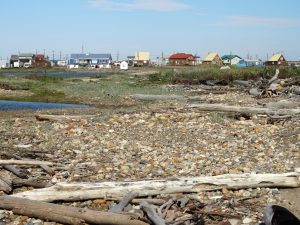Three influential Canadian environmental advocacy groups have formed a new partnership aimed at securing an ambitious national climate change strategy for Canada under the new Liberal government.
At an event in Ottawa April 14, the executive directors of Environmental Defence, Équiterre and the Pembina Institute signed an agreement forming a “climate alliance” that will work to ensure the government’s forthcoming climate strategy does its part to hold global warming to 1.5 C above pre-industrial levels.
Limiting warming to the 1.5 C threshold “could actually stop catastrophic climate change,” said Tim Gray, executive director of Environmental Defence.
“That’s a fundamental shift that happened in Paris, and now we need to figure out how to make it happen.”
The partnership will see the three organizations work closely on government relations, research and media outreach as Canada looks to fulfill the commitments it made at the COP21 climate talks in Paris last December.
Gray said he would like to see the federal government advance discussions on a national carbon pricing scheme, as well as work with the provinces to develop a strategy to decarbonize the electricity grid. He added the feds could also lead on a national code for building standards that would see new and existing structures become energy-neutral.
“There’s no reason why buildings in Canada, 10 or 15 years from now, should not be producing more energy than they’re consuming,” he said.
Ed Whittingham, executive director of the Pembina Institute, said the Paris talks represented a turning point in Canada’s willingness to explore new approaches to environmental policy.
“On climate and energy issues … a policy window doesn’t open very often, but when it does open, it tends to be wider,” he said. “I think the next 18-24 months represents the best shot that we have to come up with robust, comprehensive climate, energy and economic policy in Canada.”
Energy policy in particular has been a delicate balancing act for the Trudeau government, now in its sixth month. Crashing oil prices, slow job growth and a weak Canadian dollar have prompted calls, particularly from the western provinces and Atlantic Canada, for the government to approve new oil and gas projects such as the contentious Energy East pipeline (a project the new climate alliance strongly opposes).
Jonathan Wilkinson, MP for North Vancouver and parliamentary secretary to Minister of Environment and Climate Change Catherine McKenna, said the buy-in of the private sector will be crucial to the success of any climate change strategy.
“We are at a historic moment to address climate change, both due to the urgency of the challenge, but also due to the tremendous economic opportunity that presents itself in transitioning to a low-carbon economy,” he said. “Canada needs to be a significant player in this emerging green economy.”





